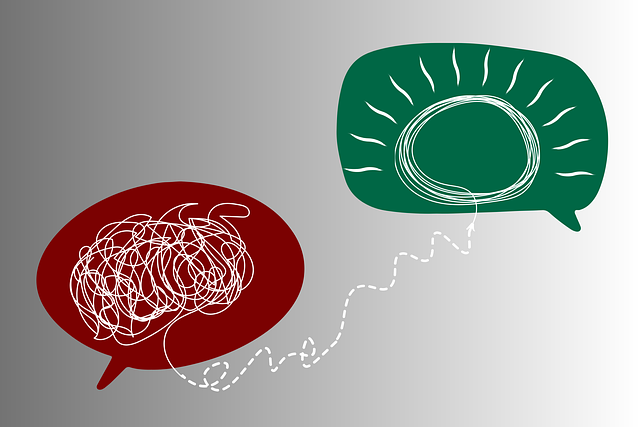Public awareness campaigns play a pivotal role in promoting mental health advocacy, especially by shedding light on aspects like Superior Conduct Disorder (SCD) Therapy. These campaigns educate the public, dispel stereotypes, and encourage understanding about mental health issues, empowering individuals to recognize signs and seek early intervention. For SCD Therapy, they can highlight the importance of self-care routines for better mental health and stress management, fostering community support and reducing stigma. Designing such campaigns requires a strategic blend of evidence-based practices and policy alignment, with personal recovery stories and emphasis on emotional healing processes. Measuring campaign success through data collection methods like surveys and stakeholder interviews is crucial for improvement; long-term sustainability needs follow-up initiatives and peer support networks. Mental health professionals must adhere to strict risk assessment protocols for ethical standards and client safety.
Public awareness campaigns play a pivotal role in shaping societal perceptions and promoting mental health initiatives, particularly regarding Superior Conduct Disorder (SCD). This article delves into the intricate process of crafting compelling campaigns that educate and advocate for SCD therapy. We explore strategies for designing impactful messages, emphasizing the importance of community engagement, and providing practical insights for measuring campaign success. By understanding these key elements, we can effectively navigate the landscape of mental health advocacy.
- Understanding Public Awareness Campaigns: Their Role in Mental Health Advocacy
- Designing Effective Campaigns for Superior Conduct Disorder Therapy
- Measuring Success and Long-term Impact: Strategies for Continuous Improvement
Understanding Public Awareness Campaigns: Their Role in Mental Health Advocacy

Public awareness campaigns play a pivotal role in advancing mental health advocacy by shedding light on various aspects of psychological well-being. These campaigns serve as powerful tools to educate the public, dispel stereotypes, and promote understanding about mental health issues, including Superior Conduct Disorder (SCD) Therapy. By presenting research-backed information, they empower individuals to recognize signs and symptoms, encouraging early intervention and improved outcomes.
In the context of SCD Therapy, such initiatives can highlight the importance of self-care routine development for better mental health, emotional regulation, and stress management. They foster a sense of community, reducing stigma and fostering open conversations about mental health challenges. Through creative means, these campaigns capture the attention of diverse audiences, encouraging them to embrace self-reflection and seek appropriate support when needed.
Designing Effective Campaigns for Superior Conduct Disorder Therapy

Designing effective public awareness campaigns for Superior Conduct Disorder Therapy (SCD) involves a nuanced approach that leverages evidence-based practices and aligns with current mental health policy trends. Campaigns should focus on normalizing conversations around SCD, reducing stigma, and promoting early intervention. Incorporating real-life stories of recovery and success can humanize the disorder, fostering empathy among the general public.
Emotional healing processes are integral to SCD therapy, so campaigns must encourage open dialogue about mental health struggles. Additionally, emphasizing the importance of self-care routine development for better mental health can empower individuals with SCD and their support systems. By combining these strategies, awareness campaigns can effectively contribute to a more supportive societal environment for those living with Superior Conduct Disorder Therapy needs.
Measuring Success and Long-term Impact: Strategies for Continuous Improvement

Measuring the success and long-term impact of public awareness campaigns is essential for continuous improvement and enhancing their effectiveness. This involves setting clear, measurable goals from the outset, allowing for regular evaluation and adaptive strategies. By utilizing robust data collection methods, such as pre- and post-campaign surveys, focus groups, and key stakeholder interviews, campaign organizers can assess changes in knowledge, attitudes, and behaviors related to the target issue. For example, if a campaign aims to promote Superior Conduct Disorder Therapy, assessments can gauge participants’ understanding of symptoms, treatment options, and societal stigma reduction.
To ensure long-term sustainability and positive change, campaigns should incorporate strategies that foster inner strength development and emotional healing processes within targeted communities. This may include follow-up initiatives, peer support networks, or ongoing education programs. Additionally, mental health professionals involved in these campaigns must undergo rigorous risk assessment protocols to maintain ethical standards and client safety. Such measures contribute to the overall success of public awareness efforts, fostering a culture that prioritizes emotional well-being and seeks appropriate support when needed.
Public awareness campaigns play a pivotal role in advocating for mental health, especially regarding Superior Conduct Disorder (SCD) therapy. By effectively communicating complex issues and dispelling stigma, these campaigns can lead to increased understanding and improved access to treatment. Through strategic design, measurement of success, and continuous improvement, we can ensure that these initiatives have a lasting impact on society’s approach to SCD therapy and the well-being of those affected.














